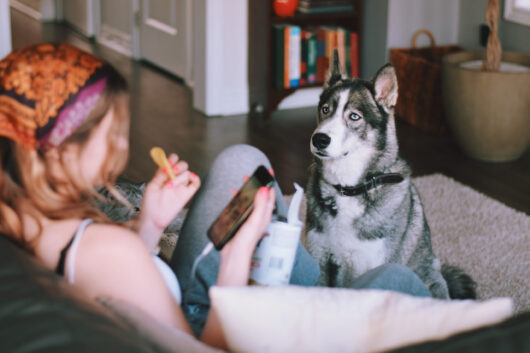
A Vet’s Guide to Safe and Unsafe Foods
As a devoted pet owner, you naturally want the best for your furry friend, including when it comes to their diet. With so many human foods available, it can be tough to know what is safe for your dog to eat. A common question is whether dogs can eat potato chips. This guide aims to explain how potato chips and similar snacks affect your dog’s health and suggests healthier alternatives.
Why Potato Chips Aren’t Safe For Dogs
Potato chips are a popular snack for humans, but they are not suitable for dogs. These snacks are high in salt, fat, and artificial flavors, which can be harmful to your pet. Excessive salt can cause sodium ion poisoning, which may result in symptoms such as vomiting, diarrhea, tremors, and potentially seizures in severe cases.
Hot chips, also known as hot fries, are also a risk for dogs. They are typically fried in oils high in unhealthy fats and seasoned with salt or spices that may irritate your dog’s stomach. Additionally, the high-fat content can lead to pancreatitis, a painful inflammation of the pancreas.
Corn chips pose similar risks to potato chips and hot chips. They contain high levels of salt and fats, along with artificial additives that can upset your dog’s digestive system. It’s best to keep these snacks away from pets
Potential Health Concerns
While a single chip might not cause immediate harm, regular consumption can lead to health problems. The combination of excessive salt and unhealthy fats can contribute to obesity, high blood pressure, and heart issues. These are serious conditions that can significantly reduce your dog’s quality of life.
Potato chips offer no nutritional benefits to dogs. Unlike balanced dog food, which is formulated to meet their dietary needs, chips lack essential nutrients and can lead to dietary imbalances. It’s crucial to provide your dog with a balanced diet tailored to their specific needs.
Healthy Alternatives
There are plenty of healthy and safe snack options for your dog. Here are some alternatives to consider:
- Carrot sticks: Low in calories and high in fiber and vitamins.
- Apple slices: A treat packed with vitamins A and C. Remember to remove the seeds and core.
- Green beans: A low-calorie snack rich with vitamins and minerals.
- Plain popcorn: Air-popped without butter or salt can be a fun snack in moderation.
Many commercial dog treats are specifically designed to be safe and nutritious. Look for options that are low in fat and contain natural ingredients. Always check the label to ensure the treat suits your dog’s dietary needs and avoid those with artificial additives.
Keep up With Your Pets Health
Regular veterinary check-ups are crucial for maintaining your dog’s health. Your vet can provide personalized dietary recommendations based on your dog’s age, breed, size, and health conditions. They can also guide you on how to safely introduce new foods into their diet.
Keeping an eye on your dog’s weight is essential. Overfeeding or providing too many treats can lead to obesity, which can cause various health problems. Regular exercise and a balanced diet are key to keeping your dog fit and healthy.
Other Foods to Avoid
It’s important to be aware of common foods that are toxic to dogs. Some of these include:
- Chocolate: Contains theobromine, which is toxic to dogs.
- Grapes and raisins: Can cause kidney failure.
- Onions and garlic: Can damage red blood cells and lead to anemia.
Conclusion
While it might be tempting to share your snacks with your furry companion, it’s best to avoid giving them potato chips and similar foods. These snacks are high in salt, fats, and additives that can harm your dog’s health. Instead, choose safe and nutritious snacks that support their well-being. Always consult your vet if you’re unsure about introducing new foods into your dog’s diet, and remember that a balanced diet is key to a happy, healthy dog.
By making informed choices about your pet’s dietary needs, you can ensure they lead a long and healthy life.